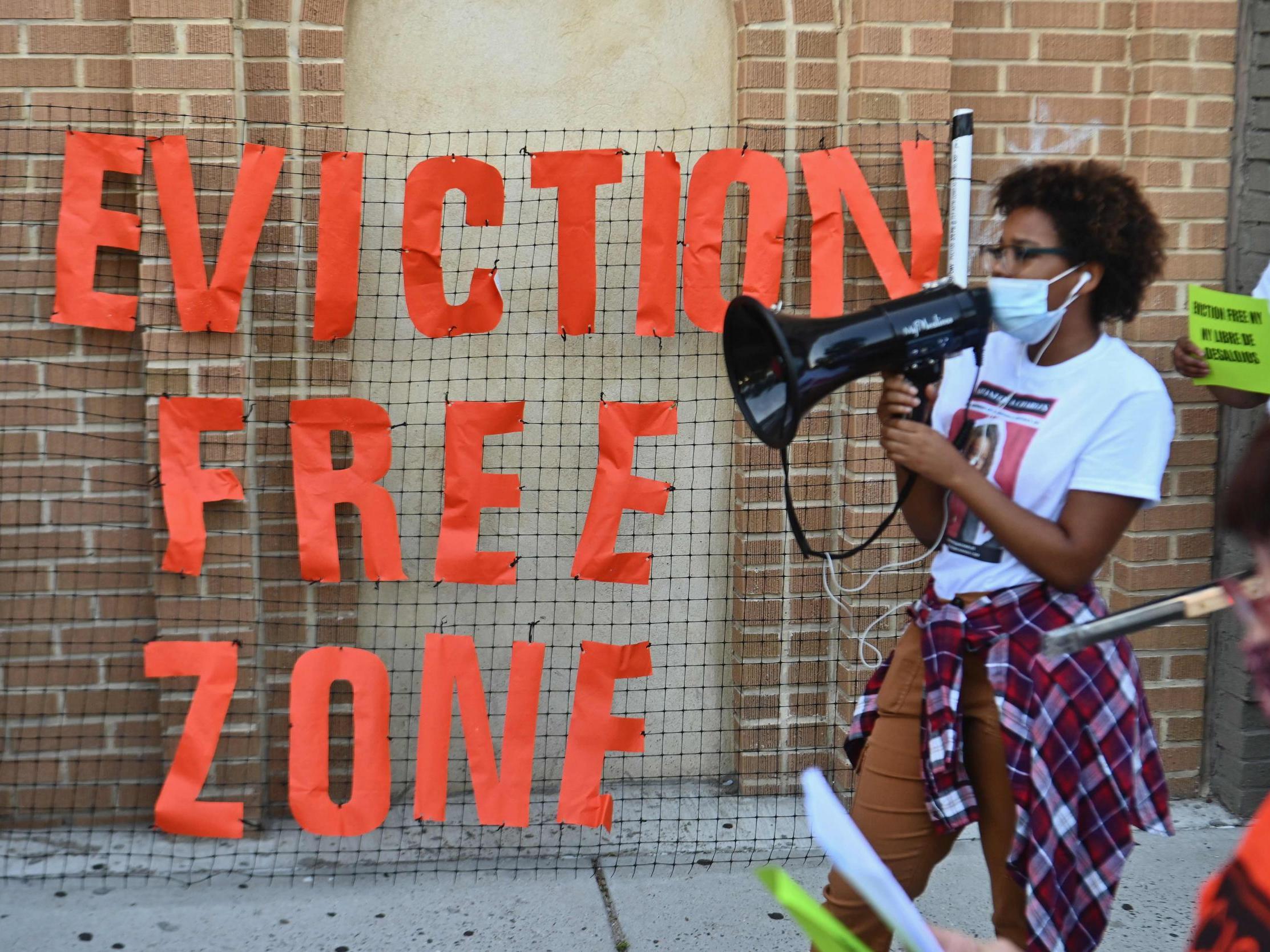American initial jobless claims surge back over one million following two-week decline
Spike comes after claims fell below value for first time since March last week

The number of workers in the US claiming initial unemployment benefits surged back past 1 million people this week following a two-week period of decline.
On Thursday, the Labour Department reported there had been more than 1.1 million jobless claims last week, showing that the country’s economy has far from stabilised.
The increased figures come after initial claims fell below 1 million for the first time since March last week, sitting at 971,000.
Despite many states beginning to reopen their economies, the country is still reeling from the ongoing effects of the coronavirus pandemic, which has seen more than 5.5 million Americans infected with the disease.
Recipients of unemployment are receiving far less aid because a $600-a-week federal coronavirus benefit has expired.
The loss of the federal benefit has worsened the struggles of many Americans, including posing a higher risk of people being evicted from their homes.
President Donald Trump this month signed an executive memorandum authorising an extra $400 in weekly unemployment insurance benefits to aid workers still affected by the pandemic.
The memorandum directs that the federal government will provide $300 in additional aid and the states will contribute another $100.
Twenty-five states have said they will apply for the federal money, with others still considering whether or not they will choose to accept it.
Some state officials have already raised fears they will not be able to contribute the extra 25 per cent of unemployment costs due to a loss of tax revenue as a result of the pandemic.
Two have said they won’t apply for the federal unemployment aid, which is set to be drawn from the country’s disaster relief fund.
Those that apply for the aid will also have to build a new system to effectively administer the funds to residents, with some economists predicting workers will not receive the money until at least the end of August.
The rise in initial claims comes as a disappointment to economists, CBS News reported, who expected initial weekly claims to have fallen from 963,000 to 920,000.
The numbers of initial claims still sit way above pre-pandemic levels of just above 200,000, according to the department.
The total number of people receiving unemployment aid declined last week from 15.5 million to 14.8 million, the government said on Thursday.
Join our commenting forum
Join thought-provoking conversations, follow other Independent readers and see their replies
Comments